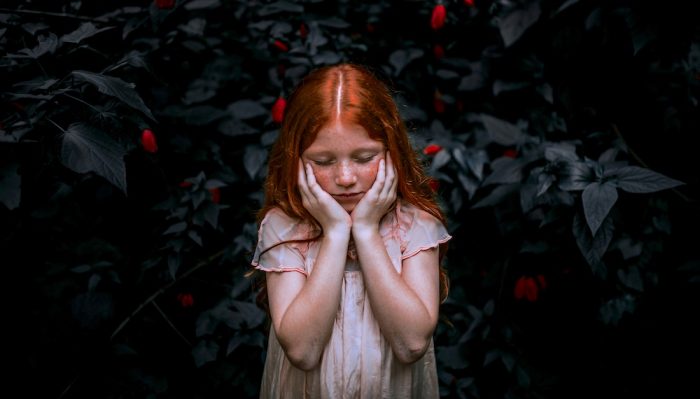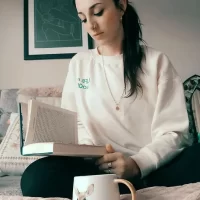To all the parents in lockdown with your children: you are probably doing a better job than you think.
We have been thrust into an unnatural situation as a result of a pandemic, and we are all feeling our way forward and adapting to our new circumstances.
For those of us who are home with our children full time, unable to work, and being faced with the prospect of homeschooling, as well as not being able to break up the time with days out, this is daunting and somewhat like a pressure cooker.
Yesterday, I found myself in tears again, on day 11 of lockdown with my two children. I phoned my daughter’s dad, sobbing that I was a bad mother because I had yelled—more like, screamed at the children after the 20th time of my toddler screeching in that high-pitched tone that only a toddler can achieve, because her brother was standing too close to her and hadn’t moved away despite me asking him three times.
I lost my cool—the reflection of my own toddler tantrum was not lost on me.
I was reassured on the phone that I was not a bad mother, and that tomorrow would be better, but I didn’t believe the words. I felt like a failure, like I had let them and myself down again. I was told that the kids still loved me even though I lost my temper, and I replied that children always love their mothers, however their mothers treat them. I know this experience well, from my own wounding.
“I don’t want to be that person!” I wailed down the phone, and I meant every word in honest desperation of feeling like I would emanate my own childhood trauma patterns forever.
This lockdown is a time to face ourselves—whether we want to or not. What do we see in the reflection of our emotions and role as a parent, and do we like what we see? For me, I did not like the role I was playing as an angry wounded child who was reacting badly to my own children.
When something has to change, it always starts with us.
Today, I affirm “I abandon my old habits and choose positive ones instead.”
We cannot outrun our pasts, nor can we fill up the damaged space with things or distractions. We must acknowledge the damage and consciously choose better pathways until we retrain our brains to respond differently, instead of reacting from a place of pain.
My own dysfunctional upbringing was fragmented, with separation from both parents at different times. My male role model was an alcoholic, and I craved to be with my mother, as children do. A mother is the lifeline and the source of nourishment for that child, even if the nourishment is limited.
The sad thing is that the child will crave this toxic parent relationship because the nourishment to whatever degree it is available is essential. We take the hits of disapproval, short temper, lack of tolerance, and molding to be something that is not true to ourselves because we don’t know any better when we are young and developing.
The rhetorical question runs through my head whenever I have reacted in a way that causes my children emotional upset: Is this painful cycle what I want to pass on to my children?
This reflection time of lockdown not only brings out our demons, but also our strengths.
This is what I have realised:
1. If I feel like I am failing, it is because I have the desire to improve. Conscious parenting always involves wanting to be better, to give the children better than what we experienced as children. It is one big learning cycle of evolving and growing.
2. I am a good parent! I have broken many patterns from my past, and that is not to be ignored because of one bad day when I reacted out of pain instead of responding from love. I show my children love and approval every day, focus on the right nutrition for them, provide a stable home, and encourage creative expression—even if that means that my walls are covered in felt-tip pen.
3. I am more than my childhood wounding. I no longer wish to define myself as a trauma survivor. I am a loving mother who is capable of unconditional love. I do not have to repeat the past over and over. I have choices.
4. I am only human—and I’m learning to be a better one. I am not aware of any parents who don’t get frustrated or angry at their children when they push their buttons or behave ungratefully.
5. We can only do our best with the capacity and knowledge we have right now. We can be gentle with ourselves and realise that we are not supposed to be superheroes and get it right all the time.
Lockdown will bring out our best and worst qualities as parents. Let us observe our actions from a neutral place, and not judge ourselves to harshly.
But above all, let it be.







Read 9 comments and reply